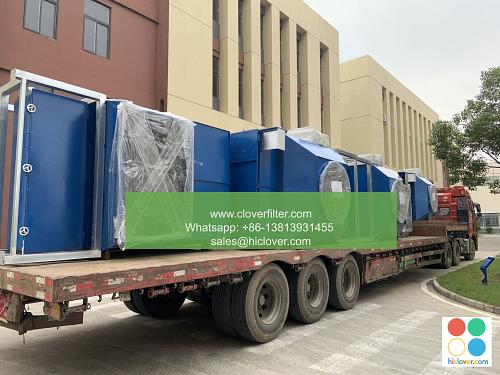Understanding the Importance of Air Filtration in Mexican Pharmaceutical Facilities

The pharmaceutical industry in Mexico is a significant sector, with many facilities involved in the manufacturing, packaging, and distribution of medicinal products. To ensure the quality and safety of these products, it is essential to maintain a clean and controlled environment within these facilities. One crucial aspect of achieving this is through the implementation of effective air filtration systems. In this article, we will explore the importance of air filtration in Mexican pharmaceutical facilities, highlighting various application areas and the benefits of using advanced filtration technologies.
The Role of Air Filtration in Pharmaceutical Facilities
Air filtration plays a vital role in pharmaceutical facilities, as it helps to remove contaminants and particulates from the air, preventing them from coming into contact with medicinal products. This is particularly important in areas such as cleanrooms, where the sterility and integrity of products must be maintained. By using high-efficiency particulate air (HEPA) filters or ultra-low particulate air (ULPA) filters, pharmaceutical facilities can ensure that the air is 99.97% free from particles as small as 0.3 microns, reducing the risk of contamination and product spoilage.
Application Areas for Air Filtration in Pharmaceutical Facilities
Air filtration is essential in various areas of pharmaceutical facilities, including:
* Manufacturing areas: where active pharmaceutical ingredients (APIs) are handled and processed
* Packaging areas: where finished products are filled, sealed, and labeled
* Cleanrooms: where sterile products are manufactured and packaged
* Laboratories: where quality control and research and development activities take place
* Storage areas: where and finished products are stored
Benefits of Advanced Filtration Technologies
The use of advanced filtration technologies in Mexican pharmaceutical facilities offers numerous benefits, including:
* Improved product quality: by reducing the risk of contamination and spoilage
* Increased efficiency: by minimizing downtime and reducing the need for rework and retesting
* Enhanced regulatory compliance: by meeting or exceeding good manufacturing practice (GMP) and international organization for standardization (ISO) standards
* Reduced costs: by minimizing the need for replacements and waste disposal
Conclusion
In conclusion, air filtration is a critical component of maintaining a clean and controlled environment in Mexican pharmaceutical facilities. By understanding the importance of air filtration and implementing effective filtration systems, pharmaceutical facilities can ensure the quality and safety of their products, while also improving efficiency, reducing costs, and enhancing regulatory compliance. As the pharmaceutical industry in Mexico continues to grow and evolve, the use of advanced filtration technologies will play an increasingly important role in maintaining the integrity and sterility of medicinal products.

